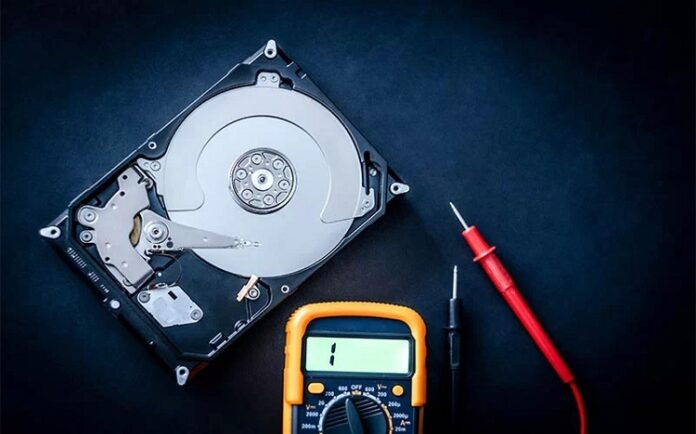In today’s data-driven world, the reliability and integrity of your information are crucial. Whether you are a business or an individual, data loss can be a significant setback. Fortunately, data recovery services offer a lifeline when your digital assets are at risk. This article will delve into the various aspects of data recovery services, helping you understand their importance and how they can safeguard your critical data.
Table of Contents
The Importance of Professional Data Recovery Services
The purpose of data recovery services is to recover deleted or unreadable data from digital media and storage devices such as hard drives, SSDs, RAID arrays, and others. When data loss happens as a result of device malfunction, unintentional deletion, corruption, or natural disasters, this procedure is crucial. Expert services offer a vital safeguard to make sure your data is not lost forever.
By opting for expert data recovery services, you gain access to specialized tools and techniques that go beyond basic troubleshooting. These professionals can handle complex recovery scenarios that might be beyond the capabilities of standard software solutions. This expertise ensures that you have the best chance of recovering your valuable data, whether it’s for personal or business purposes.
Types of Data Recovery Services
Data recovery services are not one-size-fits-all. They are tailored to address various scenarios and storage mediums. Here’s a brief overview of the different types of services available:
- Hard Drive Recovery: Hard drives are common storage devices, and they can fail due to physical damage, logical errors, or firmware issues. Recovery services can often salvage data from these drives by diagnosing the root cause of the failure and applying appropriate recovery methods.
- SSD Recovery: Solid-State Drives (SSDs) use flash memory and are less prone to mechanical failure than traditional hard drives. However, they can still suffer from data loss due to firmware corruption or wear leveling issues. Specialized techniques are required to recover data from SSDs.
- RAID Recovery: RAID (Redundant Array of Independent Disks) systems are used to enhance performance and data redundancy. When a RAID array experiences failure, it can be challenging to recover data due to the complexity of the array configuration. Expert services can rebuild and recover data from failed RAID arrays.
- Server Recovery: Servers are critical for business operations, and data loss from servers can lead to significant disruptions. Data recovery services for servers involve intricate procedures to ensure minimal downtime and data restoration.
How Data Recovery Services Work
Understanding the process of data recovery can help you appreciate the complexity and expertise involved. Here’s a general overview of how data recovery services operate:
- Diagnosis: The first step involves a thorough assessment of the storage device to determine the cause of data loss and the extent of damage. This step helps in formulating an effective recovery plan.
- Data Extraction: Based on the diagnosis, the recovery process begins. For physical damage, technicians might use cleanroom environments to open and repair the damaged drive. For logical issues, data extraction tools and software are employed.
- Data Reconstruction: After extraction, the recovered data is reconstructed and organized. This step involves repairing corrupted files and ensuring that the data is in a usable state.
- Verification and Delivery: Once the recovery process is complete, the recovered data is verified for integrity. It is then delivered to the client in a secure manner.
Choosing the Right Data Recovery Service
Selecting a reliable data recovery service is crucial for successful data retrieval. Consider the following factors when making your choice:
- Expertise and Experience: Choose a service with a proven track record and experience in handling various types of data loss scenarios.
- Reputation: Look for reviews and testimonials from previous clients to gauge the service’s reliability and effectiveness.
- Certifications and Technology: Ensure that the service uses advanced technology and has certified professionals to handle your data.
- Customer Support: Opt for a service that offers excellent customer support and transparent communication throughout the recovery process.
Conclusion
Data recovery services play a vital role in preserving your digital assets and ensuring that data loss does not lead to irreversible damage. By understanding the types of services available and how they work, you can make informed decisions and protect your valuable information.




